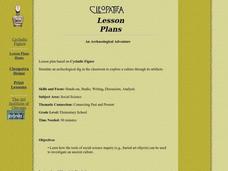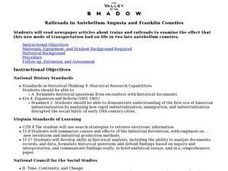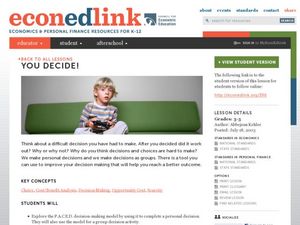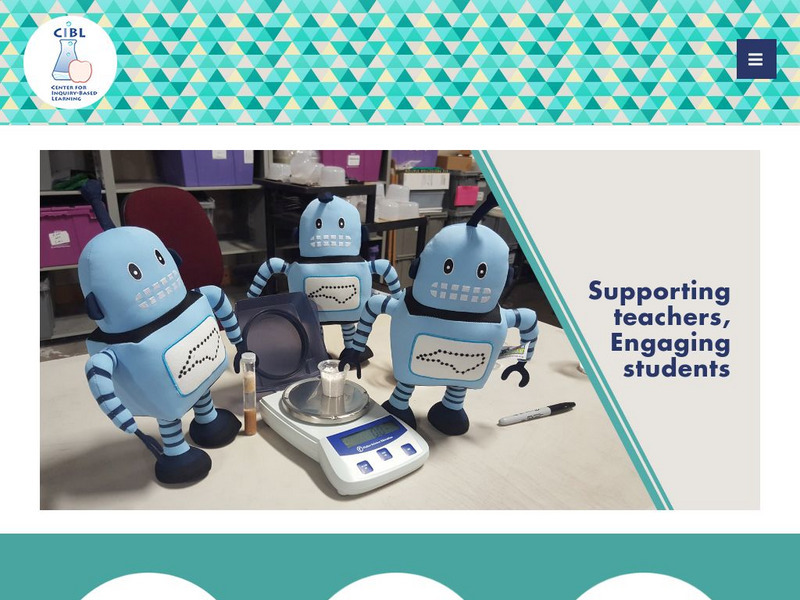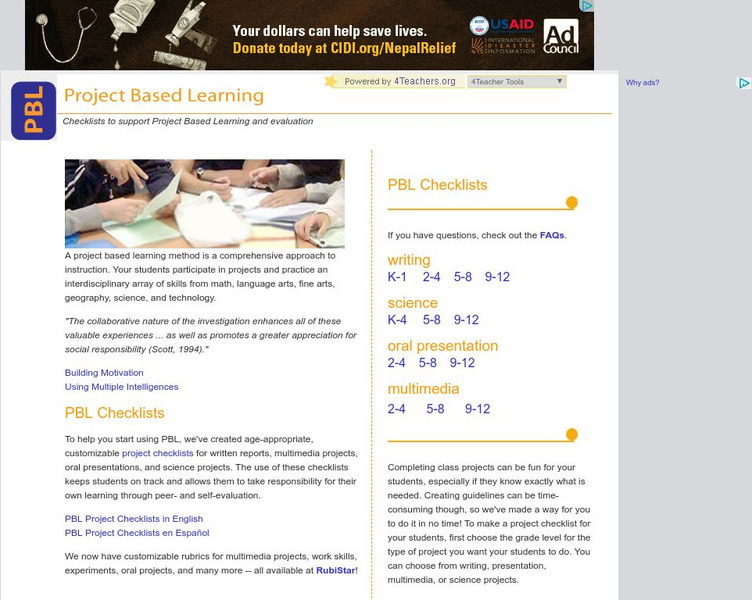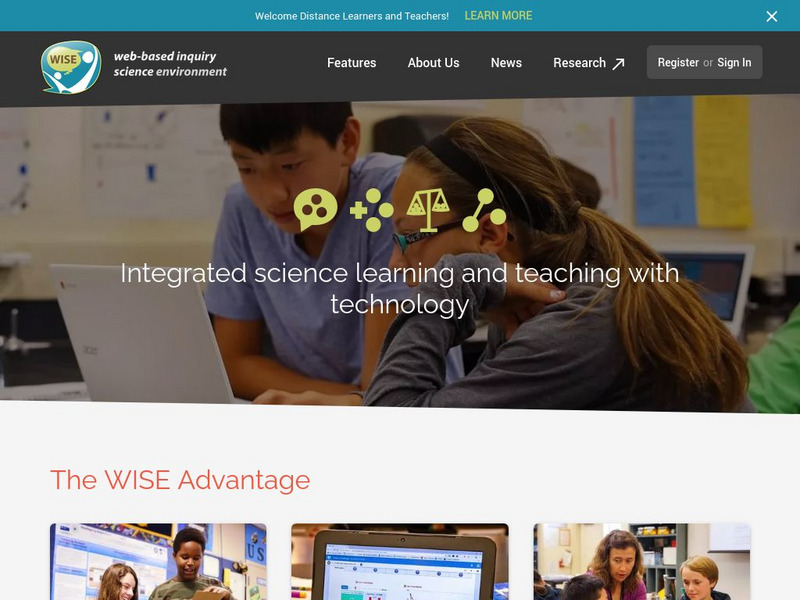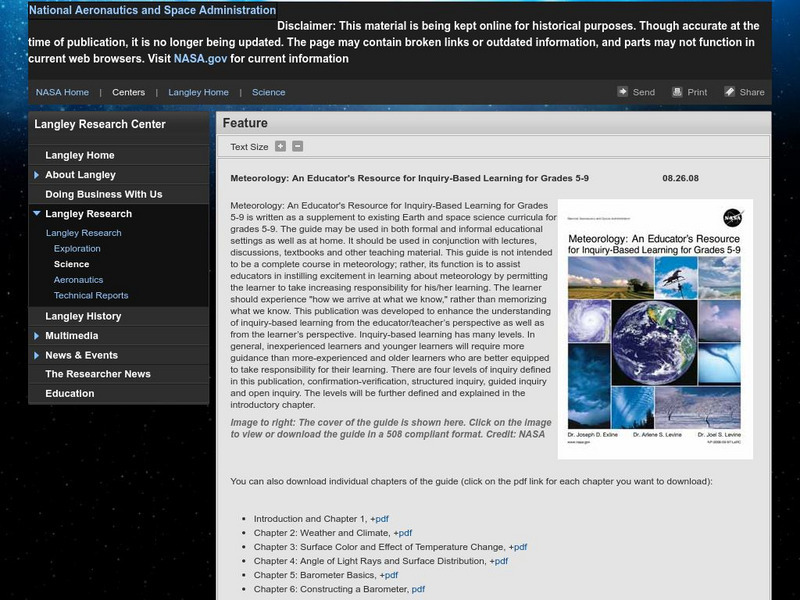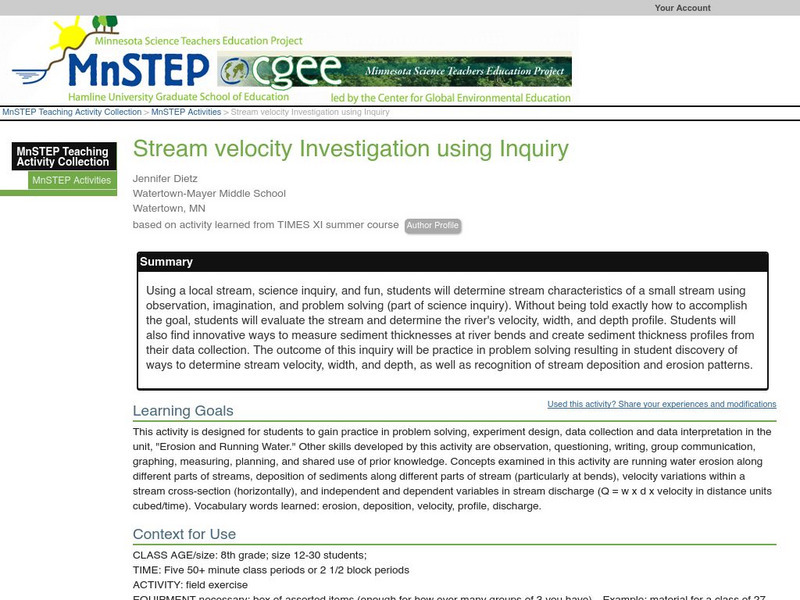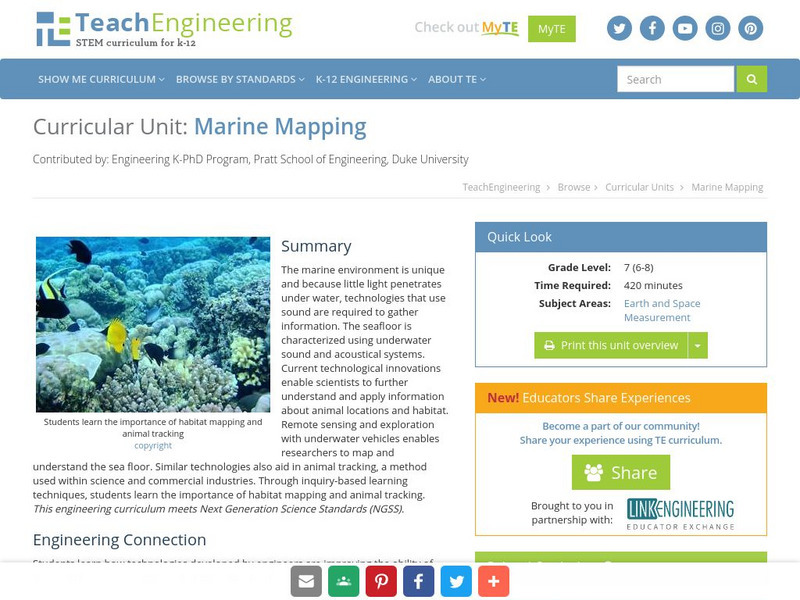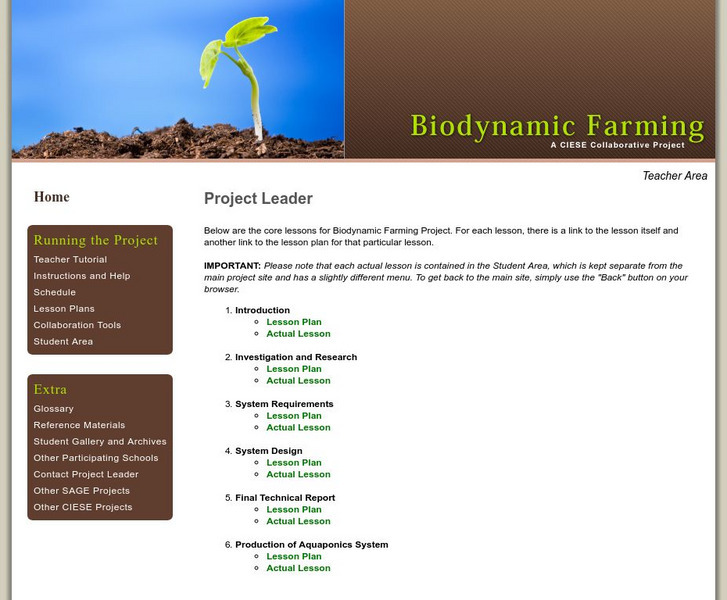Curated OER
An Archaeological Adventure
Pupils simulate an archeological dig in the classroom to explore a culture through its artifacts.
Curated OER
Radiation Reassessed
Young scholars investigate the dangers of radiation by exploring recent nuclear tragedies. In this scientific debate activity, students define the idea of radiation "half life" and determine if low doses of radiation are truly damaging...
Curated OER
Clean Water vs. Dirty Water
Students study the importance of clean water to the survival of organisms and what activiities and material pollute water. They measure the temperature of water samples and create a class graph.
Curated OER
Water Regulation
Students use their basic knowledge of physiology to analyze graphical data of paramecia under diverse conditions. From the data analysis, Students develop explanations of the animal's response to the concentration of different solutions...
Curated OER
Inside Out: An Up-Close Look At Foods We Eat
Fourth graders identify the origins of meats and vegetables consumed by humans on a daily basis. They classify foods (meats, dairy products, grains...) and create a food pyramid.
Curated OER
How Can We Locate Specific Places On Earth?
Second graders discover how to use longitude and latitude to locate specific sites on Earth. They compare old and new ways of locating specific places, and discover how latitude and longitude coordinates are used to locate places on Earth.
Curated OER
Railroads in Antebellum Augusta and Franklin Counties
Eleventh graders are divided up into groups and work on separate worksheets. They reassemble as a class and discuss the different articles and how the railroads affected people's lives.
Curated OER
Chemical Bonding
Eighth graders identify the three main types of chemical bonds. In this chemistry instructional activity, 8th graders draw Lewis dot diagrams of elements and determine the bond formed. They create a model water molecule.
Curated OER
Introduction to Ecology
Eighth graders identify the living and nonliving components of an ecosystem. In this ecology lesson, 8th graders explain the role each organism plays. They participate in class discussion and answer a quiz at the end of the lesson.
Curated OER
You Decide
Fourth graders, who live on a Native American reservation, investigate how land management is addressed at Tribal Council meetings. They participate in a simulation of a meeting as the discover the workings of tribal government. They...
Curated OER
Jobs in 1860 and Today
Students compare occupations during the 19th century with the 21st century using information from 19th century census information.
Curated OER
Searching the Attic
Students investigate an attic or basement to "discover" family artifacts. They develop a grid map using string, create a naming system for the grid, and analyze items of interest.
Other
Duke: Center for Inquiry Based Learning
Duke University has established the Center for Inquiry-Based Learning. It serves to enhance math and science lessons. Click on Resources for good examples of Inquiry-based lesson plans.
PBS
Wnet: Thirteen: Ed Online: What Do Inquiry Based Lesson Plans Look Like?
Inquiry-based lesson plans are usually referred to as "facilitation plans," to help teachers remember their role as facilitator of learning, rather than fount of all wisdom. The notion also helps teachers structure lessons more loosely...
University of Illinois
University of Illinois: Inquiry Page: Learning Begins With Questions
What exactly is inquiry-based learning? Use this website to learn more about this unique learning style.
Other
Altec: Project Based Learning Checklist
A project-based learning checklist and rubric generator helps keep students on track and allows them to take responsibility for their own learning through peer- and self-evaluation. Create checklists for writing and science projects,...
University of California
Wise: The Web Based Inquiry Science Environment
[Free Registration/Login Required] WISE provides a wide range of science inquiry projects that address contemporary and traditional topics in earth science, the life sciences, physics, and chemistry. Work is done online, and teachers can...
NASA
Nasa: Meteorology
Educator's resource guide to be used as a supplement to existing curriculum and to enhance the understanding of inquiry-based learning from both the educator/teacher's perspective as well as from the learner's perspective. Individual...
PBS
Pbs Learning Media: Collection: Sci Girls
SciGirls has the bold goal of changing how millions of girls think about science, technology, engineering and math - or STEM. Each half-hour episode highlights the processes of science and engineering, following a different group of...
PBS
Pbs Learning Media: Pbs Kids: Sci Girl: Collection
SciGirls has the bold goal of changing how millions of girls think about science, technology, engineering and math -- or STEM. Each half-hour episode highlights the processes of science and engineering, following a different group of...
Science Education Resource Center at Carleton College
Serc: Mn Step: Stream Velocity Investigation Using Inquiry
An outdoor activity where students visit a local stream for a scientific inquiry. They make observations about the stream, and take measurements of the stream's velocity, depth, and width. They will also develop a sediment thickness...
TeachEngineering
Teach Engineering: Marine Mapping
The marine environment is unique and requires technologies that can use sound to gather information since there is little light underwater. The seafloor is characterized using underwater sound and acoustical systems. Current...
Buck Institute
Pbl Works: Pbl, Common Core and Next Gen Standards
[Free Registration/Login Required] This two-page article summarizes the alignment of PBL with Common Core standards for ELA and math, plus the Next Generation Science Standards. It is an excerpt from the BIE book, PBL for 21st Century...
Center for Innovation in Engineering and Science Education, Stevens Institute of Technology
Ciese: Biodynamic Farming
During this module learners learn about biodynamic farming through hands-on activities that culminate in having multiple schools collaborate to design subsystems that are combined to make a working aquaponic system. During the SAGE...


